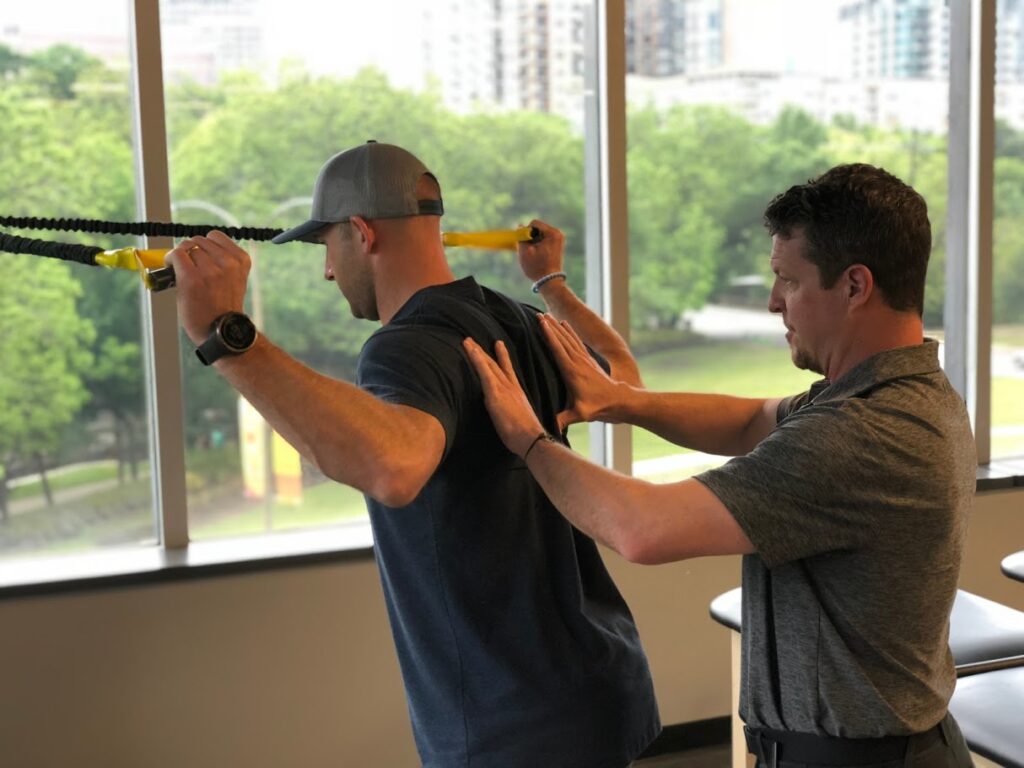IFPA Youth Fitness Instructor Certification Review (2025)
Read this IFPA Youth Fitness Instructor Certification Review to decide if the IFPA Youth Fitness Instructor Certification is worth it and what the best personal training certification is for you.

Are you passionate about fitness and working with children? Becoming an IFPA Youth Fitness Instructor could be the perfect career path for you. In this article, we will explore what it means to be an IFPA Youth Fitness Instructor, how to become one, the skills and qualities needed for success in this role, the benefits of hiring an IFPA Youth Fitness Instructor, the challenges and considerations, available resources and support, and finally, the impact of these instructors on the health and well-being of children. Learn all about the benefits of the IFPA Youth Fitness Certification in this comprehensive review.
Discover the rewarding career of an IFPA Youth Fitness Instructor and learn how to inspire and guide young minds towards a healthier and more active lifestyle. Whether you want to learn how to become a personal trainer, or learn how to become a fitness influencer, or learn how to open a gym, or learn how to start a fitness business, or anything in between, use the Exercise.com platform to accomplish your fitness business goals.

You can start an online personal training business, make a fitness app, learn how to make money selling workout plans online, put in-person personal training marketing ideas into action, use personal training income ideas to find personal trainer career options that will put you on track for the highest paying fitness jobs, and many other ways to make money from fitness doing what you love.
With the Exercise.com platform you have the best online fitness coaching software and the best software for fitness influencers all in one! (Not to mention the best gym software and the best personal training software).
Create workout plans.

Manage clients.
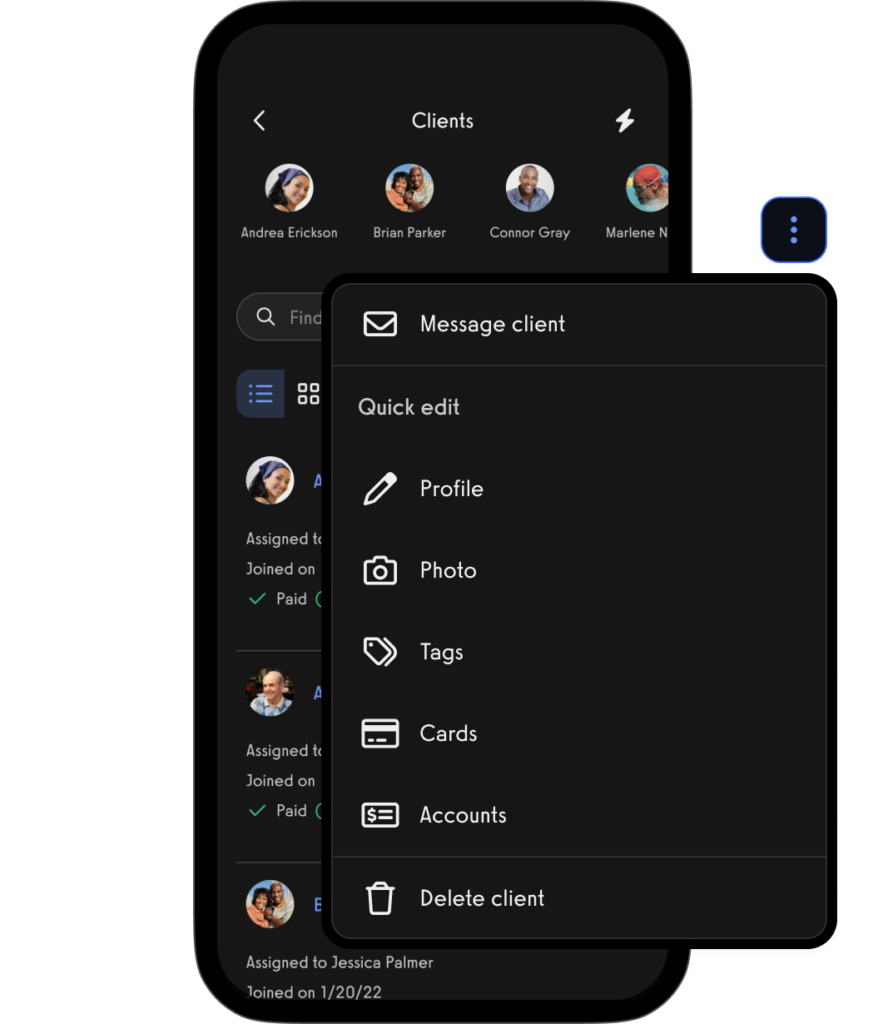
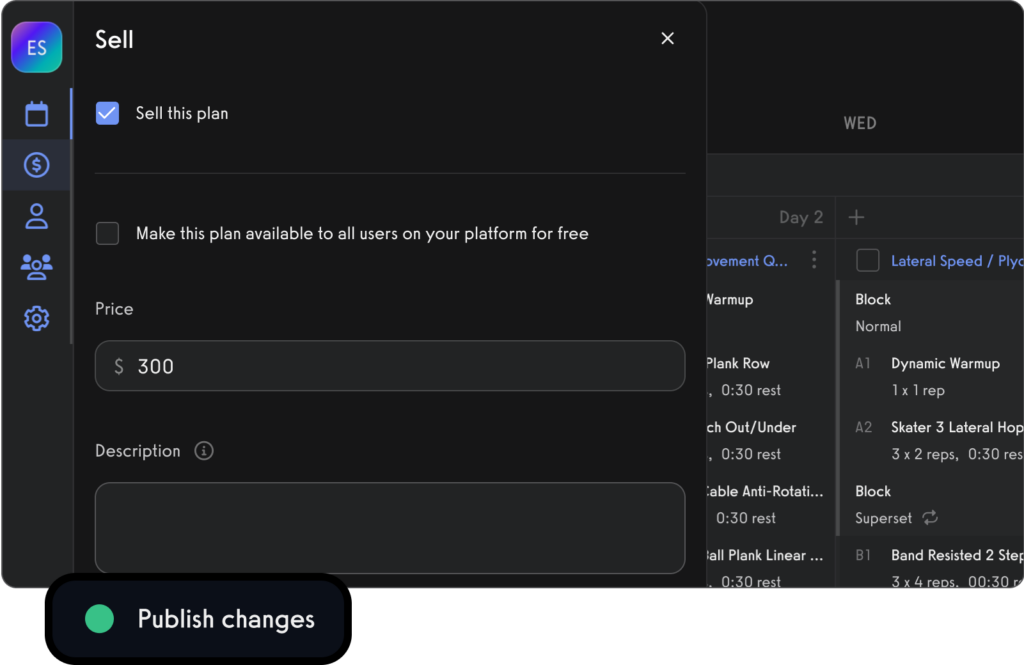
Run online fitness challenges.
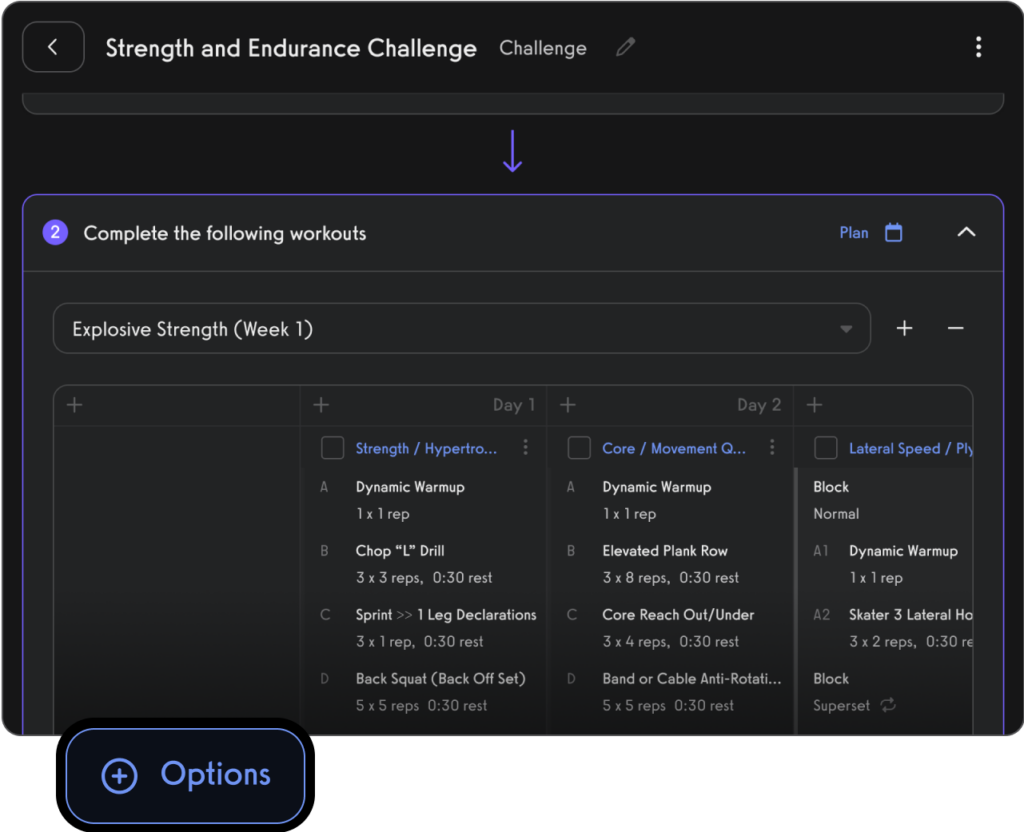
Create and sell fitness memberships, products, and digital offers.

Manage, message, and market to your online personal training clients and leads.
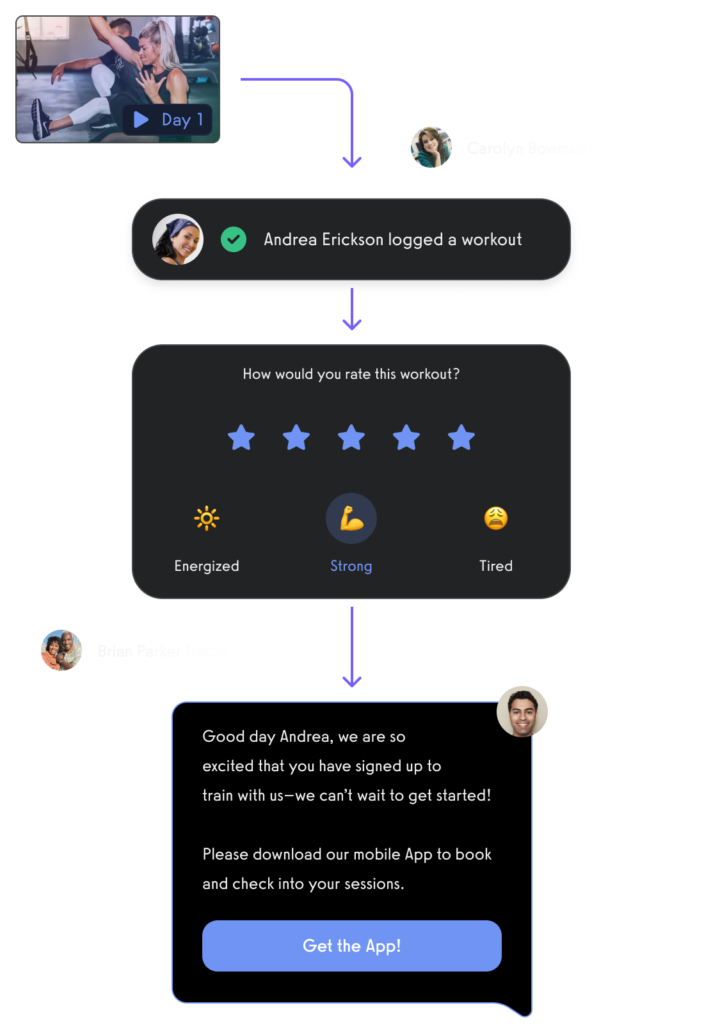
All from your very own custom branded fitness apps.
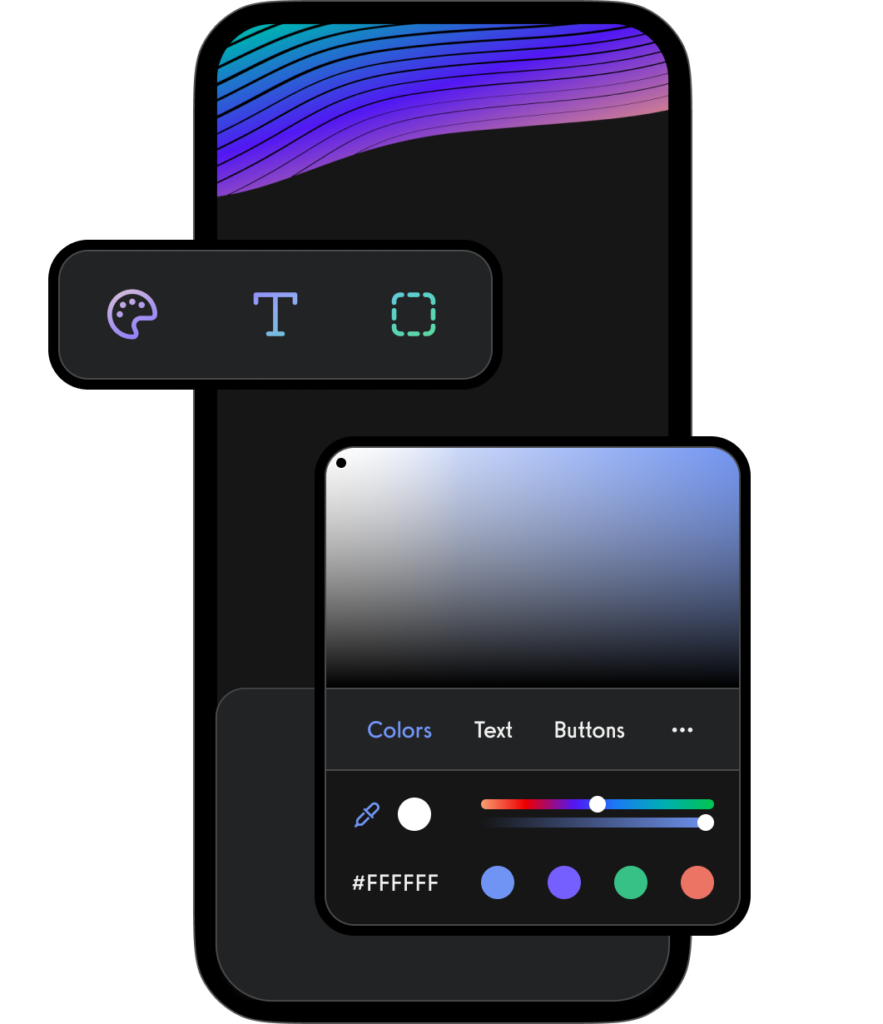
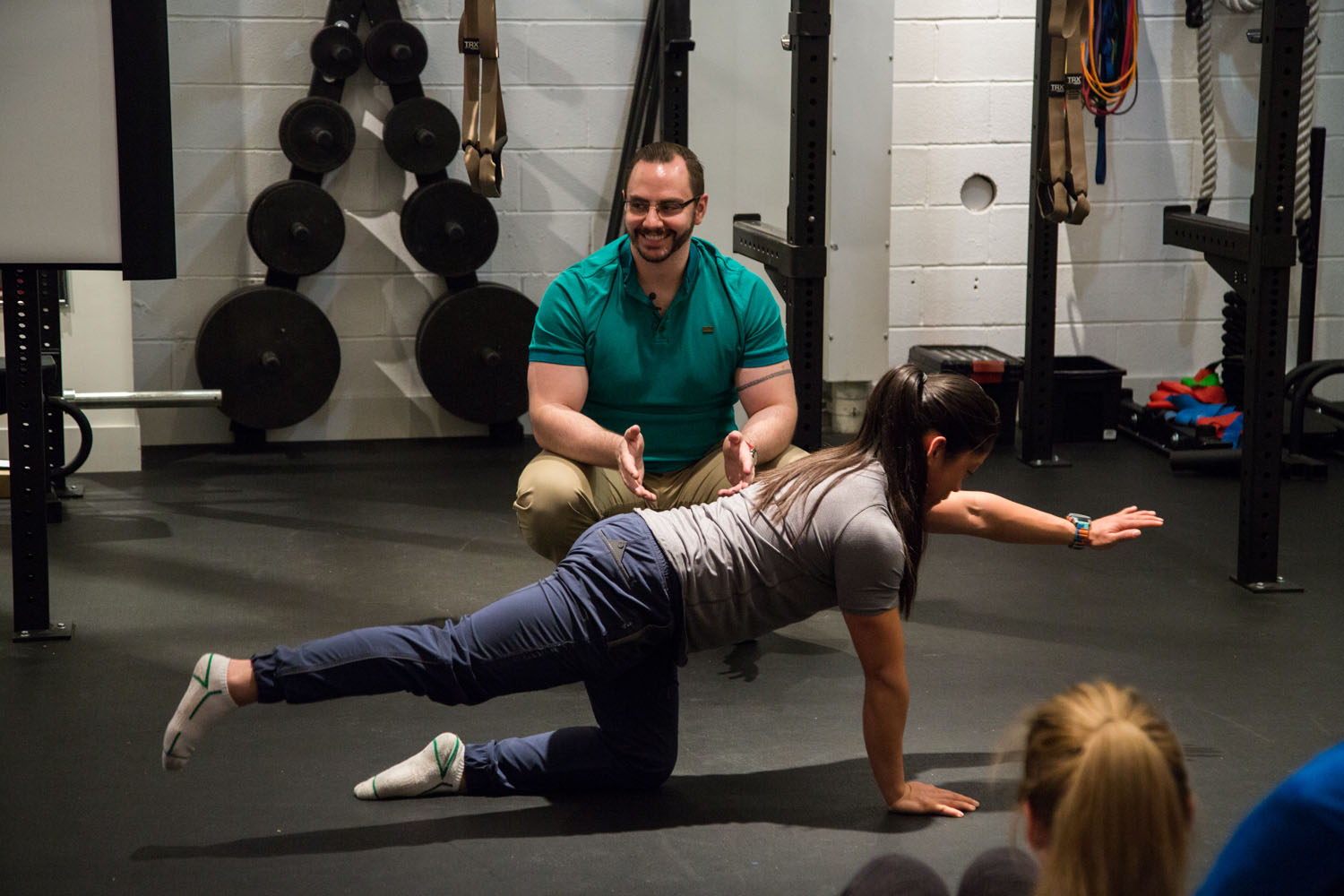
IFPA Youth Fitness Instructor General Information
The IFPA Youth Fitness Instructor Certification is tailored for fitness professionals who are passionate about improving the physical activity and overall health of children and adolescents. This certification, provided by the International Fitness Professionals Association (IFPA), delves into the specific needs, challenges, and strategies for engaging youth in physical activity and fitness programs.
- Ideal for personal trainers, physical education teachers, and youth coaches aiming to develop age-appropriate, fun, and effective fitness programs for children and adolescents.
- The curriculum covers child development, motivational strategies, program design for various age groups, and considerations for safe exercise in youth.
- Participants will gain theoretical knowledge and practical skills through comprehensive study materials, interactive workshops, and a certification examination, ensuring proficiency in youth fitness instruction.
- Graduates are prepared to design and lead fitness programs that cater to the physical, emotional, and social development of young individuals, promoting lifelong healthy habits.
IFPA Credibility and Reputation
The IFPA is known for its high-quality certification programs and commitment to advancing the fitness profession. The Youth Fitness Instructor Certification upholds this tradition of excellence, ensuring certified professionals are recognized as skilled in youth fitness.
- Renowned for its evidence-based curriculum and dedication to professional development.
- The certification enhances the professional standing and career opportunities for certified specialists in various settings, such as schools, community centers, and sports clubs.
- IFPA offers ongoing support, including access to continuing education and a network of fitness professionals, fostering an environment of lifelong learning and expertise in youth fitness instruction.
Achieving the IFPA Youth Fitness Instructor Certification signifies a professional’s expertise in youth fitness, setting them apart as qualified instructors capable of making a positive impact on the health and well-being of young people.
IFPA vs Other Top Youth Fitness Instructor Certifications
When comparing the IFPA Youth Fitness Instructor Certification to other youth fitness programs, consider the depth of training content, the focus on practical application, and the overall recognition of the certification:
- IFPA Youth Fitness Instructor Certification: Provides a comprehensive exploration of youth fitness, focusing on developmentally appropriate exercise, engagement techniques, and promoting physical literacy among youth.
- Other Youth Fitness Programs: May have a specific focus, such as sports performance, obesity prevention, or school-based physical education, tailored to particular aspects of youth fitness.
- IFPA’s certification offers a broad curriculum that prepares instructors for a wide range of youth fitness scenarios, making it a versatile choice for fitness professionals.
- Certified professionals gain access to IFPA’s educational resources and professional development opportunities, ensuring they are equipped to lead successful youth fitness programs.
- The certification empowers fitness professionals to create and deliver programs that improve physical fitness, encourage healthy lifestyle choices, and support the overall development of young individuals.
Selecting the right youth fitness certification depends on your career goals, training philosophy, and the specific needs of the youth you aim to serve. The IFPA certification offers a comprehensive approach to youth fitness, making it an excellent choice for those dedicated to improving youth health and fitness.
IFPA Cost
The investment in the IFPA Youth Fitness Instructor Certification reflects the specialized nature of the training and the professional value it provides. The cost includes access to detailed study materials, interactive workshops, and the certification examination.
- The program fee covers comprehensive training materials and workshops designed to provide a thorough understanding of youth fitness principles and their practical application.
- Opportunities for early registration discounts or bundle pricing with other IFPA certifications may be available, enhancing the overall value of the investment.
- The expertise gained through this certification can lead to enhanced career opportunities and income potential in the fitness industry, particularly for those specializing in youth fitness programs.
While the cost may be a significant consideration, the professional development and specialization provided by the IFPA Youth Fitness Instructor Certification justify the investment for fitness professionals committed to making a difference in the lives of young people through fitness.
IFPA Youth Fitness Instructor Exam Content
The IFPA Youth Fitness Instructor Certification exam is structured to assess a candidate’s comprehensive understanding of youth fitness principles, including safe exercise practices, program design, and motivational strategies tailored for children and adolescents. Key areas covered in the exam include:
Developmental Considerations
- In-depth knowledge of the physical, cognitive, and emotional development stages of children and adolescents and how these impact fitness program design and instruction.
- Understanding the specific needs and limitations of youth in terms of exercise, including considerations for growth plates, coordination, and attention spans.
Exercise Program Design for Youth
- Proficiency in creating age-appropriate, engaging, and safe exercise programs that cater to the interests and abilities of young individuals.
- Skills in incorporating a variety of activities, including games, sports, and fitness challenges, to promote enjoyment and adherence to physical activity.
Safety and Injury Prevention
- Knowledge of safety guidelines and best practices for youth fitness, including proper warm-up, cool-down, and exercise techniques to minimize the risk of injury.
- Strategies for creating a safe exercise environment and teaching youth about the importance of safety in physical activity.
Successfully passing the certification exam demonstrates a fitness professional’s competency in youth fitness instruction, equipping them with the credentials to design and implement effective and safe fitness programs for children and adolescents.
IFPA Youth Fitness Instructor Continuing Education and Recertification
To maintain the IFPA Youth Fitness Instructor Certification, certified professionals must engage in ongoing professional development, ensuring they stay informed about the latest advancements in youth fitness and physical education:
- Continuing Education Units (CEUs): Certified instructors are required to complete a specified number of CEUs focused on youth fitness, emerging fitness trends, or related subjects within each recertification cycle.
- Advanced Learning Opportunities: IFPA offers a selection of advanced courses, workshops, and seminars that delve deeper into youth fitness topics, providing avenues for instructors to further refine their expertise.
- Professional Growth: Recertification and continuous education reflect an instructor’s dedication to their professional development and to delivering high-quality youth fitness programs.
Engaging in continuous professional development is crucial for youth fitness instructors to enhance their expertise, adapt to new teaching methodologies, and uphold the highest standards of practice in delivering engaging and developmentally appropriate fitness programs for young individuals.
Other IFPA Offerings
In addition to the Youth Fitness Instructor Certification, IFPA provides a broad spectrum of fitness certifications and educational opportunities that can complement an instructor’s expertise in youth fitness:
- Specialty Certifications: Such as the Strength Training Specialist or High Intensity Training Certification, allowing youth fitness instructors to incorporate specialized training approaches into their programs for older children and adolescents.
- Health and Wellness Certifications: Including the Nutrition Coach Certification or Wellness Coach Certification, equipping instructors with a holistic understanding of health and wellness to support their youth fitness programs.
- Continuing Education Courses: Covering a variety of topics from the latest in youth fitness trends to holistic health approaches, supporting instructors in their ongoing professional development and innovation in youth fitness instruction.
Exploring additional certifications and courses can enrich a youth fitness instructor’s practice, offering a comprehensive approach to child and adolescent health and fitness that incorporates the latest scientific insights and methodologies in youth fitness and beyond.
IFPA Youth Fitness Instructor Certification Overall Rating
The IFPA Youth Fitness Instructor Certification is an outstanding program for fitness professionals dedicated to enhancing the physical activity and health of children and adolescents. It provides an in-depth exploration of youth fitness principles, program design, safety protocols, and the practical application of engaging fitness activities for youth.
Pros
- Comprehensive training in youth fitness principles enhances instructors’ ability to create fun, safe, and effective fitness programs for children and adolescents.
- The credibility of an IFPA certification enhances professional opportunities and recognition within the fitness industry, distinguishing certified instructors as specialists in youth fitness.
- Access to ongoing educational resources and a supportive professional community fosters continuous learning and career development, ensuring instructors remain at the forefront of youth fitness practices.
Cons
- The certification requires a significant investment of time and financial resources, but the specialized expertise and professional benefits gained justify the cost and contribute to an instructor’s growth and success in the field.
- The focused nature of youth fitness instruction may necessitate additional certifications or qualifications to comprehensively address the broadest range of fitness disciplines and client needs, especially as children transition into adolescence.
Overall, the IFPA Youth Fitness Instructor Certification is highly recommended for fitness professionals looking to make a positive impact on the health and well-being of young individuals. It provides the advanced knowledge, skills, and credentials necessary to design and lead engaging fitness programs that promote physical activity, healthy lifestyle choices, and the overall development of children and adolescents.
Integrating youth fitness instruction with the best personal training software can further enhance an instructor’s ability to manage programs, track participant progress, and deliver tailored fitness plans, ensuring a high-quality and personalized training experience for young clients seeking to improve their fitness and health.
An IFPA Youth Fitness Instructor is an individual who specializes in designing and implementing fitness programs for children and adolescents. Their primary goal is to promote physical activity and healthy lifestyles among young people. These instructors are trained to work with children of all ages and fitness levels, focusing on age-appropriate exercises and activities. They play a crucial role in the development and maintenance of healthy habits in children, ensuring they grow up to be physically active and fit adults.
Physical fitness is an essential aspect of overall health and well-being, and it is particularly important for children and adolescents. Regular exercise not only helps in maintaining a healthy weight but also improves cardiovascular fitness, strengthens muscles and bones, enhances mental well-being, and promotes the development of motor skills. However, in today’s society, sedentary lifestyles and increasing rates of childhood obesity have become significant concerns. This is where IFPA Youth Fitness Instructors step in to make a difference.
The role and responsibilities of an IFPA Youth Fitness Instructor
As an IFPA Youth Fitness Instructor, you have the responsibility of designing and delivering fitness programs that cater specifically to children. Your main tasks will include assessing the fitness levels of individual children, developing and implementing customized exercise routines, teaching proper form and technique, and motivating children to participate actively in physical activities. You will also educate children and their parents on the importance of regular exercise and provide guidance on nutrition and healthy lifestyle choices.
Each child is unique, and their fitness needs and abilities vary. Therefore, as an IFPA Youth Fitness Instructor, you will need to adapt your programs to suit the individual needs of each child. This may involve modifying exercises to accommodate physical limitations or creating engaging and fun activities to keep children motivated and interested. By tailoring fitness programs to the specific needs of each child, you can ensure that they feel empowered and capable of achieving their fitness goals.
Along with these direct responsibilities, you will need to maintain accurate records of the children’s progress, communicate effectively with parents, and stay up to date with the latest research and best practices in youth fitness. Continual professional development is crucial in this field as it allows you to refine your skills, incorporate new techniques, and provide the best possible guidance and support to the children you work with.
The importance of youth fitness and the need for qualified instructors
Youth fitness is of utmost importance due to the sedentary lifestyles and increasing rates of childhood obesity in today’s society. Regular physical activity is crucial for promoting healthy growth and development, improving cardiovascular fitness, strengthening muscles and bones, and enhancing mental well-being.
Qualified IFPA Youth Fitness Instructors are essential in addressing these issues. Their expertise in child development and fitness ensures that exercise programs are safe, effective, and enjoyable for children of all ages. By understanding the unique needs and limitations of children, these instructors can design programs that are challenging yet achievable, helping children develop a positive attitude towards physical activity.
One of the key benefits of having qualified instructors is their ability to prevent and reduce childhood obesity. By creating engaging and age-appropriate exercise routines, IFPA Youth Fitness Instructors can instill a love for physical activity in children, making it a lifelong habit. This not only helps in maintaining a healthy weight but also reduces the risk of developing obesity-related health conditions, such as diabetes, heart disease, and joint problems.
In addition to physical health benefits, youth fitness also plays a significant role in mental well-being. Regular exercise has been shown to improve mood, reduce stress and anxiety, and enhance cognitive function in children and adolescents. By promoting physical activity, IFPA Youth Fitness Instructors contribute to the overall mental well-being and academic performance of young individuals.
Furthermore, qualified instructors are also instrumental in boosting self-esteem and confidence in children. Through positive reinforcement and encouragement, they create a supportive environment where children feel empowered to challenge themselves and achieve their fitness goals. This sense of accomplishment not only improves their physical fitness but also enhances their self-image and self-belief, leading to improved overall well-being.
In conclusion, IFPA Youth Fitness Instructors play a vital role in promoting physical activity and healthy lifestyles among children and adolescents. By designing and implementing age-appropriate fitness programs, they help children develop healthy habits that will benefit them throughout their lives. Their expertise ensures that exercise routines are safe, effective, and enjoyable, making physical activity an integral part of a child’s daily routine. With the increasing importance of youth fitness, qualified instructors are essential in addressing the sedentary lifestyles and rising rates of childhood obesity. Through their guidance and support, they contribute to the overall health, well-being, and future success of young individuals.
How to become an IFPA Youth Fitness Instructor
Now that you understand the importance of this role, let’s explore the process of becoming an IFPA Youth Fitness Instructor.
Becoming an IFPA Youth Fitness Instructor is an exciting and rewarding career path that allows you to make a positive impact on the lives of children. This role requires a combination of education, certification, training, and continuous professional development. By following these steps, you can embark on a journey towards becoming a knowledgeable and effective youth fitness instructor.
Education and certification requirements
To become an IFPA Youth Fitness Instructor, you will need a high school diploma or equivalent. However, a college degree in exercise science, kinesiology, or a related field is highly recommended. A solid educational foundation in these areas will provide you with a deeper understanding of the human body, exercise physiology, and child development.
Additionally, you will need to complete a specialized certification program designed specifically for youth fitness instructors. The IFPA (International Fitness Professionals Association) offers a comprehensive certification that includes coursework on child development, exercise physiology, injury prevention, and program design. This certification verifies that you possess the knowledge and skills necessary to work effectively with children.
During the certification program, you will delve into the intricacies of child development and learn how to tailor fitness programs to meet the unique needs of children. You will study the physiological differences between children and adults, gaining insight into how to create safe and effective workouts for young individuals. Through hands-on training and practical assessments, you will develop the expertise required to guide children towards a healthier lifestyle.
Training and practical experience
While completing the certification program is essential, practical experience is equally important. Seek out opportunities to work with children in various settings such as schools, community centers, or youth sports programs. This will allow you to apply your knowledge in real-life situations and gain valuable insights into working with children of different ages, backgrounds, and abilities.
Consider volunteering your services or participating in internships to gain hands-on experience under the guidance of experienced professionals. This practical experience will help you develop your communication and leadership skills, as well as provide you with a deeper understanding of the challenges and rewards of working with children in a fitness setting.
By observing and interacting with children, you will learn how to motivate and engage them in physical activity. You will discover the importance of adapting your teaching style to suit different learning preferences and abilities. This practical experience will also allow you to refine your program design skills and learn how to create fun and effective workouts that keep children excited about fitness.
Continuing education and professional development
As in any field, staying current with the latest research and best practices is vital for success. As an IFPA Youth Fitness Instructor, you should actively engage in continuing education and professional development opportunities.
Attend conferences, workshops, and seminars focused on youth fitness. These events provide a platform for networking with other professionals in the field, sharing knowledge, and gaining new insights into the latest trends and advancements in youth fitness. By attending these events, you will expand your professional network and have the opportunity to learn from experienced instructors who have successfully worked with children for many years.
Read books and research articles related to child development and exercise science. Stay updated on the latest studies and findings that can enhance your understanding of how physical activity impacts children’s overall health and well-being. By staying informed and continuously honing your skills, you can provide the best possible support to the children under your guidance.
Additionally, consider pursuing advanced certifications or specialization courses that focus on specific areas of youth fitness. These additional qualifications will not only enhance your knowledge and expertise but also demonstrate your commitment to professional growth and development.
Becoming an IFPA Youth Fitness Instructor is a lifelong journey of learning and growth. By combining a solid educational foundation, practical experience, and continuous professional development, you can become a trusted and influential figure in the lives of children, helping them develop healthy habits and a lifelong love for fitness.
Skills and qualities of a successful IFPA Youth Fitness Instructor
To excel in this role, certain skills and qualities are essential. Let’s explore some of these:
Knowledge of child development and growth
Understanding the physical, cognitive, and social-emotional development of children is crucial. This knowledge will allow you to tailor your fitness programs to meet the specific needs and abilities of each child. You should be aware of milestones and variations in growth patterns throughout childhood and adolescence. This knowledge will help you design appropriate exercises that promote healthy development.
Ability to create age-appropriate fitness programs
Each age group requires a different approach to fitness. Younger children may benefit from activities that focus on coordination, balance, and fundamental movement skills. Older children and adolescents may be ready for more complex exercises that challenge their strength, endurance, and flexibility. An IFPA Youth Fitness Instructor should be able to develop engaging programs that are suitable for each age group.
Effective communication and motivational skills
Working with children requires exceptional communication skills. You should be able to explain exercises and techniques clearly, using age-appropriate language. Motivating children to participate actively in physical activities can be challenging, but essential for their progress. Positive reinforcement, encouragement, and making workouts fun are all techniques that will help keep children engaged and motivated.
Safety and injury prevention expertise
Safety should always be a top priority when working with children. An IFPA Youth Fitness Instructor must possess a thorough understanding of injury prevention techniques and proper exercise form. Being able to identify potential risks and create a safe fitness environment is crucial for the well-being of the children under your care.
Benefits of hiring an IFPA Youth Fitness Instructor
Hiring an IFPA Youth Fitness Instructor can bring significant benefits for children and their families:
Improved physical fitness and overall health of children
Regular participation in age-appropriate physical activities can significantly improve children’s physical fitness levels. By hiring an IFPA Youth Fitness Instructor, parents can have peace of mind knowing that their children are engaging in exercises that promote their overall health and well-being.
Enhanced self-esteem and confidence
Participating in physical activities and seeing improvements in their abilities can boost children’s self-esteem and confidence levels. A qualified instructor can help create a supportive and encouraging environment where children feel motivated to challenge themselves and achieve their personal fitness goals.
Development of lifelong healthy habits
By learning about the importance of regular exercise and making it a fun and enjoyable experience, children are more likely to develop lifelong healthy habits. An IFPA Youth Fitness Instructor can instill a love for physical activity in children from an early age, setting them up for a lifetime of health and wellness.
Reduced risk of childhood obesity and related health issues
Childhood obesity is a growing concern worldwide. Hiring a qualified youth fitness instructor can play a significant role in preventing and reducing childhood obesity rates. Regular physical activity, combined with proper nutrition education, can help children maintain a healthy weight and reduce the risk of obesity-related health issues such as diabetes and cardiovascular disease.
Challenges and considerations for IFPA Youth Fitness Instructors
While the role of an IFPA Youth Fitness Instructor can be incredibly rewarding, it also comes with its fair share of challenges. Here are a few considerations to keep in mind:
Dealing with diverse age groups and fitness levels
Working with children means encountering a wide range of ages and fitness levels. Balancing the needs and abilities of each child in a group setting can be challenging. As an instructor, you must be adaptable and able to modify exercises to accommodate different skill levels.
Addressing individual needs and limitations
Not all children will have the same abilities or limitations. Some may have conditions that require specific modifications or adaptations. It is crucial to have the knowledge and skills to identify and address individual needs to ensure that every child feels included and safe during exercise sessions.
Ensuring a fun and engaging fitness environment for children
Children are more likely to stay engaged and motivated when they enjoy the activities they are participating in. As an IFPA Youth Fitness Instructor, it is essential to create a fun and energetic atmosphere that keeps children excited about exercising. Incorporating games, challenges, and variety into your sessions can help maintain their interest and enjoyment.
Collaborating with parents and other stakeholders
Effective communication with parents and other stakeholders is essential for the success of your fitness programs. Keeping parents informed of their child’s progress, addressing any concerns or questions they may have, and involving them in the decision-making process will help create a collaborative and supportive environment.
Resources and support for IFPA Youth Fitness Instructors
As an IFPA Youth Fitness Instructor, you do not have to navigate this journey alone. Various resources and support systems are available to assist you throughout your career:
Professional organizations and networking opportunities
Joining professional organizations, such as the IFPA, can provide you with access to a network of like-minded professionals. These organizations often offer educational resources, networking events, mentoring programs, and continued professional development opportunities. Connecting with other youth fitness instructors can help you stay up to date with industry trends and share experiences and best practices.
Recommended books, websites, and online resources
There are several books, websites, and online resources dedicated to youth fitness. These resources offer valuable insights, exercise ideas, program templates, and research findings. Keeping a collection of trusted resources will allow you to continue expanding your knowledge and skills.
Mentoring and coaching programs for career growth
Mentoring and coaching programs provide guidance and support to help you advance in your career as an IFPA Youth Fitness Instructor. Working with a mentor who has experience in the field can help you navigate challenges, develop your expertise, and hone your teaching and coaching abilities.
Becoming an IFPA Youth Fitness Instructor
IFPA Youth Fitness Instructors play a vital role in promoting the physical fitness and overall well-being of children. By becoming an IFPA Youth Fitness Instructor, you can make a positive impact on the lives of young people by laying the foundation for a healthy future. The knowledge, skills, and qualities required for this role can be acquired through education, certification, practical experience, and continuing professional development.
The benefits of hiring an IFPA Youth Fitness Instructor are numerous, including improved physical fitness, enhanced self-esteem, development of lifelong healthy habits, and a reduced risk of childhood obesity. However, this role also comes with challenges, such as working with diverse age groups, addressing individual needs, creating an engaging fitness environment, and collaborating with parents. Fortunately, there are resources, support systems, and professional organizations available to help you succeed in this rewarding career. Together, we can ensure that the future of youth fitness remains bright with qualified and dedicated IFPA Youth Fitness Instructors at the helm.
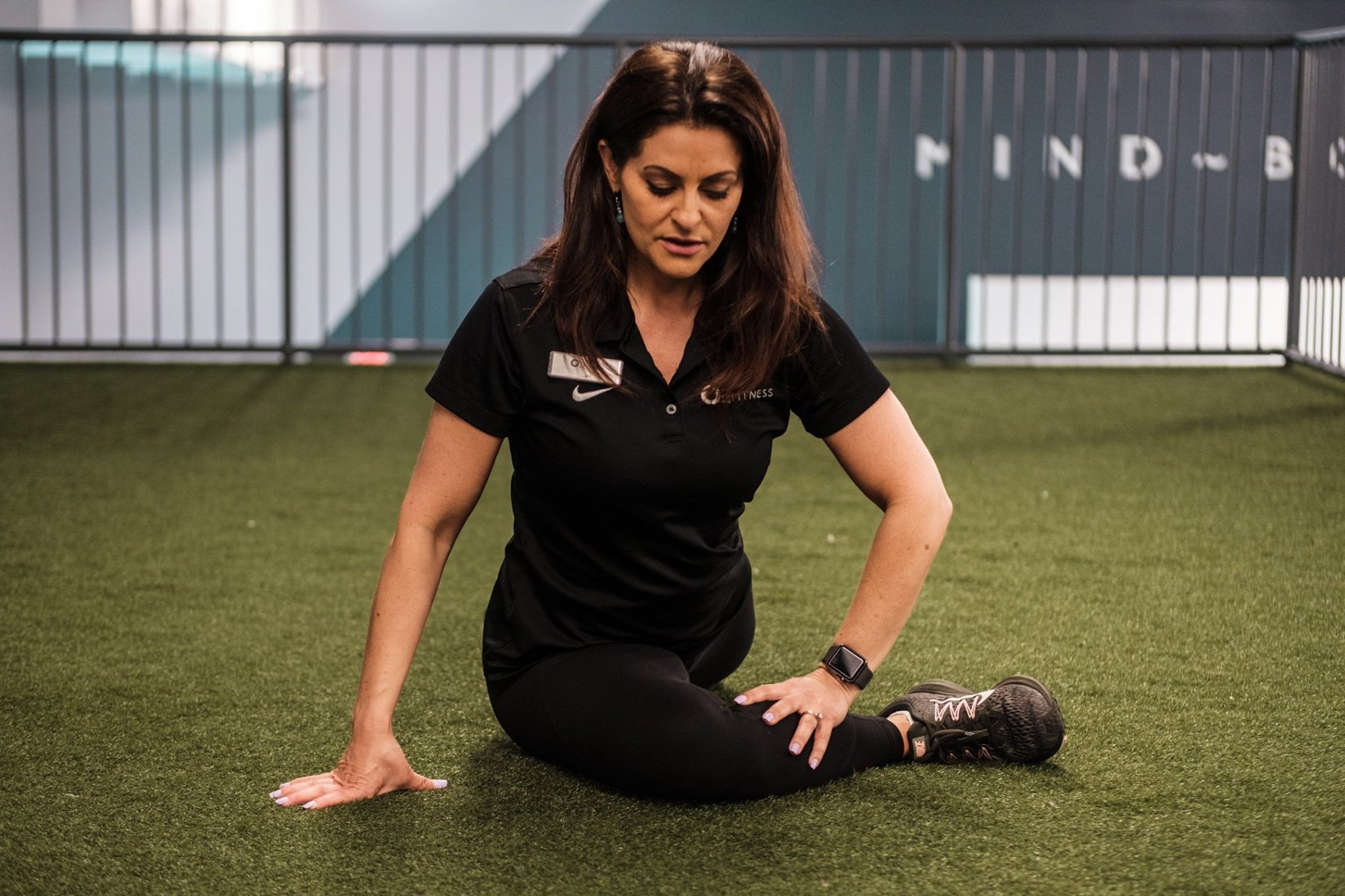
For the IFPA Youth Fitness Instructor Certification, let’s explore the specific questions:
What is the IFPA Youth Fitness Instructor Certification?
The IFPA Youth Fitness Instructor Certification is a specialized program designed to equip fitness professionals with the knowledge and skills necessary to effectively design and implement fitness programs for children and adolescents. This certification covers a range of essential topics, including developmental physiology, age-appropriate exercise guidelines, motivational strategies for young exercisers, and creating fun and engaging workouts that promote a lifelong love of fitness. It’s ideal for personal trainers, physical education teachers, and coaches who wish to make a positive impact on the health and fitness of younger populations.
Is the IFPA Youth Fitness Instructor Certification worth it?
Absolutely, the IFPA Youth Fitness Instructor Certification is highly valuable for professionals dedicated to improving the physical activity levels and overall health of children and adolescents. With the increasing concern over youth inactivity and obesity, this certification provides the tools and knowledge to develop effective and enjoyable fitness programs that can instill healthy habits early in life, making it a worthwhile investment for those committed to making a difference in youth wellness.
Who should get the IFPA Youth Fitness Instructor Certification?
This certification is particularly suitable for:
- Fitness professionals looking to specialize in or expand their knowledge of youth fitness.
- Physical education teachers aiming to enhance their curriculum with innovative fitness programming.
- Coaches of youth sports teams seeking to incorporate general fitness principles into their training regimens.
- Anyone passionate about promoting health and fitness among young people and making a positive impact on their long-term wellness.
How difficult is the IFPA Youth Fitness Instructor Certification exam?
The IFPA Youth Fitness Instructor Certification exam is designed to be challenging, reflecting the specialized knowledge required to safely and effectively work with young exercisers. It assesses a candidate’s understanding of youth-specific fitness considerations, including developmental stages, exercise programming, and motivational techniques. Success on the exam requires thorough study of the IFPA’s materials and, ideally, practical experience working with youth in fitness settings.
How credible is IFPA?
The IFPA is renowned for its comprehensive, science-based certification programs in the fitness industry. The Youth Fitness Instructor Certification is developed to meet IFPA’s high educational standards, ensuring that certified instructors are equipped with the latest knowledge and practical skills needed to deliver quality fitness programs for children and adolescents, enhancing the IFPA’s credibility among fitness professionals and clients alike.
How many people pass the IFPA Youth Fitness Instructor Certification exam on the first try?
While the IFPA does not publish specific pass rates for the Youth Fitness Instructor Certification exam, candidates who are well-prepared, have a solid foundation in basic fitness principles, and have experience working with children and adolescents in a fitness context are generally more likely to pass on their first attempt.
What is the pass rate of the IFPA Youth Fitness Instructor Certification exam?
The IFPA does not disclose pass rates for the Youth Fitness Instructor Certification exam. However, a focused approach to studying the provided materials and practical application of youth fitness principles in various contexts can significantly improve a candidate’s chances of success.
How does IFPA compare to other organizations for youth fitness certification?
When comparing the IFPA to other organizations offering youth fitness certifications, it’s important to evaluate the depth of the curriculum, the focus on age-appropriate fitness strategies, and the certification’s recognition within the fitness industry. The IFPA’s Youth Fitness Instructor Certification stands out for its comprehensive approach to youth fitness education, making it a valuable credential for professionals aiming to specialize in this important area.
Is the IFPA Youth Fitness Instructor Certification test open book?
Typically, the IFPA Youth Fitness Instructor Certification exam is conducted without the use of reference materials, requiring candidates to demonstrate their mastery of youth fitness concepts and their ability to apply this knowledge in designing and leading effective fitness programs for young people.
How many times can you fail the IFPA exam?
IFPA provides candidates with the opportunity to retake the Youth Fitness Instructor Certification exam if they do not achieve a passing score on their initial attempt. The organization’s policies regarding exam retakes, including any applicable fees and the waiting period required between attempts, should be reviewed directly with IFPA for the most current information.
What can I do with an IFPA Youth Fitness Instructor Certification?
With this certification, you can:
- Design and implement engaging fitness programs for children and adolescents in schools, community centers, fitness clubs, and sports camps.
- Work individually with young clients to develop personalized fitness plans that cater to their interests, fitness levels, and developmental stages.
- Lead group fitness classes for youth that focus on building fundamental movement skills, improving physical fitness, and encouraging a positive attitude toward exercise.
- Educate parents, teachers, and community leaders about the importance of youth fitness and how to foster a supportive environment for physical activity.
How much does the IFPA Youth Fitness Instructor Certification cost?
The cost of the IFPA Youth Fitness Instructor Certification can vary, depending on factors such as course materials, workshops, and the examination fee. Interested individuals should consult the IFPA’s official website or contact the organization
directly for the most accurate and up-to-date pricing and program details.
What are the best personal training certifications?
Among the top personal training certifications recognized for their comprehensive content, practical relevance, and industry acceptance are:
- NASM Certified Personal Trainer (CPT), renowned for its holistic and adaptable approach to fitness training.
- ISSA Certified Personal Trainer, which provides extensive education covering fitness, nutrition, and business aspects of personal training.
- ACE Certified Personal Trainer, known for its emphasis on behavior change and client-centered training methodologies.
- NSCA Certified Strength and Conditioning Specialist (CSCS), ideal for those focusing on performance enhancement and strength conditioning.
Choosing the right certification depends on your specific career goals, the populations you wish to serve, and your areas of interest within the fitness industry, ensuring you’re well-prepared to provide effective and engaging fitness guidance.
